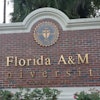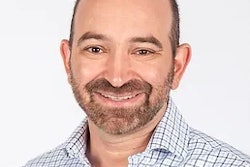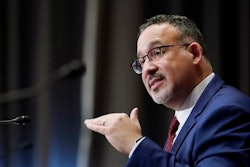
Miami Dade College (MDC) celebrated its commencement with three ceremonies last April at loanDepot park, the home of Major League Baseball’s Miami Marlins. U.S. Surgeon General Dr. Vivek Murthy, Florida Lt. Gov. Jeannette Nuñez, and Pro Football Hall of Famer Jason Taylor spoke. Later this month, MDC will host a ceremony that is less glamorous but no less significant: the awarding of associate degrees to 18 incarcerated students at Everglades Correctional Institution.
These students make up MDC’s first class as part of the Second Chance Pell Experiment, a 2015 initiative of the Obama administration to make federal Pell grants available to prisoners, who had been banned from receiving the funds since the mid-’90s wave of “tough on crime” policies.
While serving their sentences, students took full course loads, including classes in philosophy, chemistry, and Spanish, allowing them to complete their degrees in a year and a half. The path was not easy for students nor administrators — the program kicked off in January 2021 amid the COVID-19 pandemic.
The program was forced into a sort of correspondence model as Everglades built the computer lab.
“Many other schools pushed back their launch date,” said Samantha Carlo, co-director of MDC’s Institute of Educational Empowerment. “We were determined to get it started ASAP, no matter what that meant. So, we started making packets. We drove to the prison weekly and distributed them. Students would write all their questions. We came back at the end of the week, we picked up the packets, we would get them to the faculty, and the faculty would write back. It was very manual, very labor intensive.”
However, the students succeeded despite the lack of direct contact with their teachers.





















